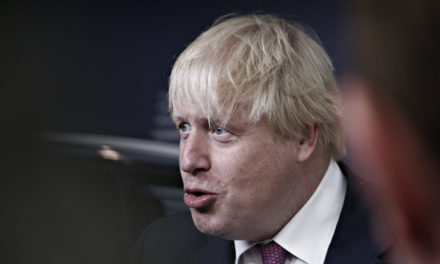On to the early
Eurostar and, to get my head into French as I prepare for a mass of interviews
to promote my novel, ‘Tout est dans la Tete,’ I picked up Le Monde.
First stop a G20 twelve-page pull out, a reminder of the scale and the
challenge of the London Summit. Dotted around the place are little interviews
with people in different parts of the world saying what they want from the
summit, beyond the obvious – like the rescue of the global economy, a new
financial architecture and millions of jobs. So there is the Catholic charity
worker saying it is about protecting the poor. The Russian economist and the
Turkish business leader saying it is all about resisting protectionism. The
businessman saying this must be the moment Europe and the US come together. Another
echoing President Sarkozy’s call for a global financial regulator. Another
saying the G20 must usher in a fairer capitalism. An executive from Ecobank
saying Africa must not be forgotten. A Brazilian fruit and veg trader calling
for an overhaul of global agriculural pricing. And a rather menacing one from
an American carworkers’ union official saying they helped get Barack Obama
elected and the new President is there to ‘defend our interests.’
Then there’s a country by country analysis of what
the leaders are hoping for, and whilst there may be greater convergence than
above – they all want to agree moves to strengthen the global economy – this is
clearly going to be a Summit where genuine big differences will emerge.
There is in the world of Summitry a place called Sherpaland, and it is
fitting that the term applied to those who prepare the ground for the leaders
is best known in relation to climbing Everest.
The sherpas will have been flying in and out of each other’s capitals to test
positions, work out limits for room for manoeuvre and establish where the
strongest alliances can be made.
The British sherpas, as eyes and ears for the host, Gordon Brown, have the
toughest job of all. But every leader and every delegation will be hoovering up
info about the others’ positions any which way they can find it in the next two
or three sleep-deprived days.
I know it is easier said than done, but from now on in, GB has to try to shut
out all the noise outside – and there will be plenty – ignore every headline
and every bulletin – and just focus on getting the job done. He knows the
arguments – his own and everyone else’s – inside out. The downside is there are
lots of differences between the twenty leaders.
The upside is that all of them
want to leave London able to say the meeting left hopes of recovery in a better
place.
The sherpas have done their work. With his pre-summit globe-trotting, GB did a
fair bit of the sherpa work himself. Now real leadership -bringing people
together around shared goals, principles and then detailed policy prescriptions
– has to kick in.
Easy said when all I have to do in the next few days is talk in French about
my novel.
But having been through a few of these big Summits alongside TB, I think as a
general rule, the louder the noise outside, the more you need to rely on your
own k
nowledge, experience and instinct. And a bit of luck will come in handy
too. So bonne chance.



Every country has its own take on what they think is the solution, personally I dont think the solution will come from the top it has to start at the bottom with ordinary people doing ordinary things. A little less selfishness would go a long way, learning to consider a situation without the focus being on oneself.
Very interesting insights on the ‘sherpa’ practice! It’s a shame we don’t know more about these people, to be able to acknowledge and know more about their fascinating work. At the same time, unfortunately, I think exposing themselves to the media would seriously undermine the effectiveness of their assignments.
Avec vingt pays différents à la table, mes attentes sont modestes. Tout ce que j’ai à ajouter c’est mon admiration pour tous les participants qui semblent vouloir résister un retour au protectionnisme; en amérique du nord, les syndicats de l’industrie automobile sont bélliqueux et quasi-xénophobes mais ce n’est comme si Obama et Harper sont exactement ravis avec eux ces jours-ci.
J’aurai dû te donner mon truc-Eurostar: à chaque fois, je m’éfforce à commencer à penser en français quelque part lorsque le train passe sous la Manche. Je ne m’imquiète pas pour toi, mais je t’envoie tout de même, le mot de Cambronne.
Big contrast with Le Monde and today’s Times, which devotes a double page spread to where Sarah Brown might (or might not) consider taking the G20 “WAGs” in London.
Sigh.
I wonder how the French people are feeling at the moment with their government threatening to walk out of the summit. Will somebody tell them that diplomacy is about working things out not walking out.
Can you hear that? I think it’s the sound of fingers being crossed all over the world (along with the odd silentish prayer).
The thing that’s giving me the most hope is that there doesn’t seem to be any attendees coming along with the stated intent of being spoilers (apart from a bit of posturing from Sarkozy, which mostly looks like pre-bargain positioning).
Everyone’s keen for a deal. Let’s just hope they cut one that means something.